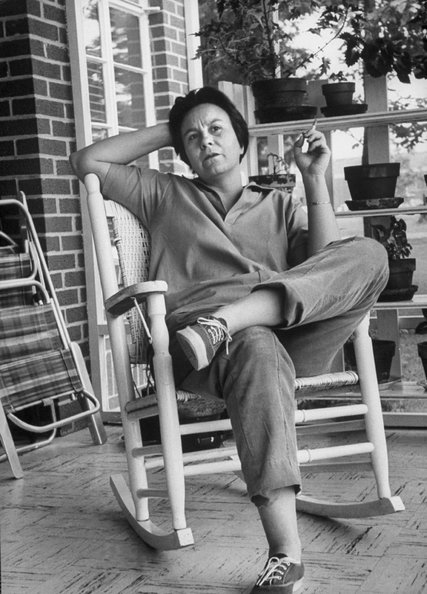For those who grew up in the South, and –perhaps somewhat surprisingly—for those who grew up elsewhere, reading Southern Literature is not only pleasurable, it’s satisfying. Southern writers connect to their audiences, and their audiences become fiercely loyal because of that connection. Consider the likes of Harper Lee, William Faulkner, and Mark Twain—their followings are nothing short of phenomenal. So what is it about Southern Writers that attracts readers to them? Here are a few points on which fans of great Southern literature are sure to agree:
SOUTHERN WRITERS UNDERSTAND THE IMPORTANCE OF MAKING US FEEL LIKE WE’RE THERE.
It’s one of the best descriptions of setting ever: “Maycomb was a tired old town, even in 1932 when I first knew it. Somehow, it was hotter then. Men’s stiff collars wilted by nine in the morning. Ladies bathed before noon after their three o’clock naps. And by nightfall were like soft teacakes with frosting from sweating and sweet talcum. The day was twenty-four hours long, but it seemed longer. There’s no hurry, for there’s nowhere to go and nothing to buy…and no money to buy it with.” (from Harper Lee’s To Kill a Mockingbird)
Here, Harper Lee puts us immediately in our places and makes us feel, perhaps even to the point of discomfort, that we are in the miserable heat of a Maycomb summer. She is only one in a long line of Southern writers authors to do so. For some reason, Southern writers simply have a penchant for pulling us into their worlds, and making us want to stay awhile. It’s Southern Hospitality at its best.
SOUTHERN WRITERS HAVE A SUPERB HANDLE ON DICTION AND DIALECT
William Faulkner and Mark Twain were masters of the art, and many have lived up to their example. It’s no easy matter to make writers hear the words you write as though they’ve just been spoken in a certain time and place. When Mark Twain writes as Jim in Huckleberry Finn, we can hear the older black man as he sputters, “De bes’ way is to res’ easy en let de ole man take his own way. Dey’s two angels hoverin roun’ ’bout him.” Huc, too, is given a voice with, “it warn’t no time to be sentimentering,” and the like. Working dialect as a writer is an art form, and it isn’t for the faint of heart.
SOUTHERN WRITERS DON’T PULL PUNCHES.
Consider almost any Southern novel you’ve read. There’s a good chance it was to the point. Southern writers tend not to mince words, and they depict their characters as quite human. When Harper Lee calls Bob Ewell “the disgrace of Maycomb for three generations,” we do not doubt his lack of character.
We also know exactly what’s going on when we are privy to the interchange, “’Sir,’ she said, ’you are no gentleman!’ … ‘An apt observation,’ he answered airily,’ and, you, Miss, are no lady,’” between Scarlett and Rhett in Margaret Mitchell’s Gone with the Wind.
Southern authors tell it like it is. Their characters do the same.
SOUTHERN WRITERS MAKE US FEEL PART OF THEIR CIRCLE.
Have you ever closed a novel and thought, “I’m going to miss these people?” Has a book ever had the effect on you that ending it was like saying goodbye to an old friend? Southern writers have a knack for including us in their written worlds and making us feel at home. How comfortable were we pulling up a seat at the Whistle Stop Café in Fried Green Tomatoes by Fannie Flagg? Or gossiping in the beauty salon of Robert Harling’s Steel Magnolias? Southern writers have a way of drawing us in. Perhaps it’s yet another example of the hospitality for which the South is so well known.
SOUTHERN WRITERS HAVE A GREAT GRASP ON EMOTION.
There are books like Nicholas Sparks’ The Notebook that make us laugh and cry and want to scream before the book is finished. There are books like Interview with a Vampire by Anne Rice that take us on thrill rides we don’t want to end. There are books like Wilson Rawls’ Where the Red Fern Grows that leave us longing for more and different, more jaded, than when the book began. Southern writers write with passion, emotion, intellect… and their audiences are all the better for reading it.
SOUTHERN WRITERS HAVE A WAY OF PRODUCING TIMELESS WORKS.
Perhaps the most amazing thing about Southern writers is that their books and plays withstand the tests of time. It’s why To Kill a Mockingbird is still assigned in almost every high school in America, and why your teenage daughter will enjoyBecause of Winn-Dixie by Kate DiCamillo every bit as much as you do. It is why we still know the titles True Grit and The Red Badge of Courage. The lessons they contain still hold true, today, as they did twenty years ago, and as they will twenty years from now. That’s transcendence. It’s also staying power.
–ocbookshoppe.com




